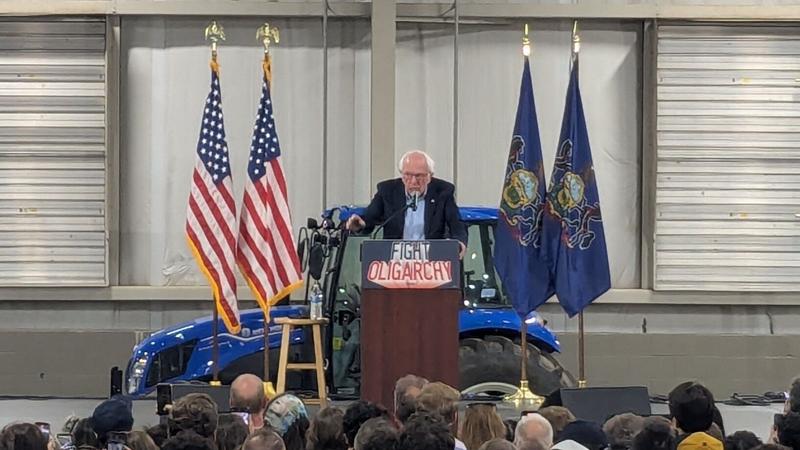President Donald Trump signed an executive order Monday aiming to slash U.S. prescription drug prices by ensuring America doesn’t pay more than its economic peer countries for pharmaceutical drugs – and critics are already mounting a response.
Sen. Bernie Sanders, I-VT, who has long advocated for universal health care in the U.S., issued a statement opposing the order Monday afternoon and mentioning an alternative measure for those who desperately want to see prescription drug prices lowered.
“If Trump is serious about making real change rather than just issuing a press release, he will support legislation I will introduce to ensure we pay no more for prescription drugs than people in other major countries,” Sanders said in a Monday press release, adding that if such legislation could find support among both parties, they could “get it passed in a few weeks.”
Besides the legal opposition the order will likely face, Sanders also seemed to suggest that the order was targeting the wrong things.
“The problem is not that the price of prescription drugs is too low in Europe and Canada. The problem is that the extraordinarily greedy pharmaceutical industry made over $100 billion in profits last year by ripping off the American people,” Sanders said.
To lower what the U.S. pays for drugs and achieve price parity with other countries, the order directs administration officials, like Health and Human Services Secretary Robert F. Kennedy, Jr., to develop pricing targets for drug manufacturers and to create direct-to-consumer purchasing programs for pharmaceutical companies that comply with those targets. If drug companies don’t conform to the new standards, the order authorizes federal rulemaking to impose most-favored-nation pricing and encourages potentially importing more prescription drugs, as well as the Food and Drug Administration potentially revoking drug approvals.
Steve Knievel from the Public Citizen, a nonprofit consumer advocacy group that has sued the Trump administration many times, agrees with Sanders in questioning not only the sincerity of this effort to drastically reduce drug prices in the U.S., but also its effectiveness.
Knievel told The Center Square he doubts the administration really believes the order will accomplish its designs because of some of the first Trump administration’s failed actions on the matter, as well as what Republicans in Congress are working to achieve now in the budget bill.
“Right now, it’s strongly believed that congressional Republicans are going to seek to delay drug price negotiations under the Medicare Drug Price Negotiation Program for a longer period of time,” Knievel said. “There’s already these inappropriate, long delays in the law where the secretary is prohibited from negotiating drugs until they’ve been on the market for at least seven years.”
If that period is extended, it would mean Medicare patients wouldn’t have access to the negotiated price of certain drugs until they’ve been on the market for 13 years, according to Knievel.
Knievel also finds many aspects of the order legally questionable, which he said might be his most compelling reason for doubting the administration’s intentions behind the order.
“This seems sort of like wishful thinking, and it’s not clear they have legal authority to do any of the things that they propose to do,” he said.
Many of the actions the order calls for invoke authorities Knievel said the administration clearly doesn’t have – like Kennedy negotiating drug prices across the entire market – or will be difficult to prove it does have. What is clearly legally permissible within the order, like the Federal Trade Commission and the Department of Justice enforcing antitrust law, won’t have much of an impact on drug prices, Knievel said.
Still, others voiced support for the order, saying the U.S. should pressure other countries to pay more for prescription drugs. The order includes a directive to the secretary of commerce and the U.S. trade representative to essentially “ensure” other countries are paying prices the administration deems adequate.
“The Administration is right to use trade negotiations to force foreign governments to pay their fair share for medicines. U.S. patients should not foot the bill for global innovation,” said President and CEO of the Pharmaceutical Research and Manufacturers of America Stephen Ubl in a statement shared with The Center Square.
The Independent Medical Alliance, an organization that promoted alternative care methods like ivermectin during the pandemic, also supported the order.
“Americans have borne the brunt of big pharma’s ability to price outside of ‘supply and demand.’ This executive order levels the playing field, ensuring American patients aren’t unfairly burdened,” said Joseph Varon, IMA’s President and Chief Medical Officer, in a statement.







